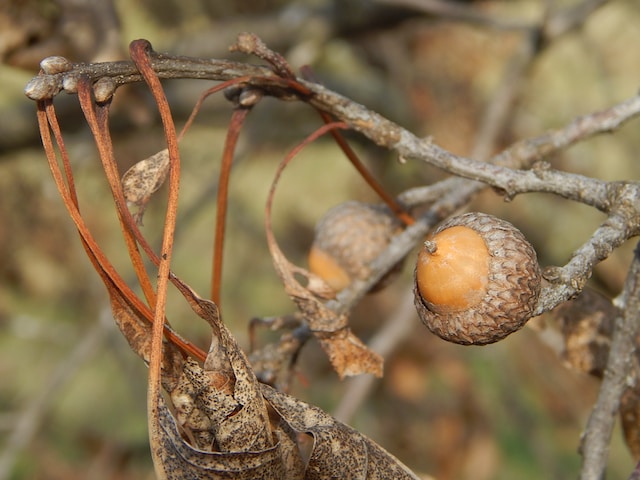Death By Oak
Consider the ways a tree might quash you—
hurricane blown branches, driving full-speed
at a fat trunk standing firm. First, it’s seed—
sprouts follow. Years yield concentric rings. Do
we sympathize with shameless creatures who
wield axes, saws—who satisfy their need
for sky? Who dwells in shade? Does God? Does greed?
We human kind demand a direct view.
Under a willow oak, I sip and laugh
with friends. Oysters roast nearby. As crisp air
flits and flirts, a thin leaf choreographs
a swift dance into my cup. Without care
I gulp. Cool drink, vengeful leaf. Epitaph
reads “She didn’t belong here.” That seems fair.
Hell in Earth
Colossal branches cleaved up top, a cypress
carries on. Revived, renewed, reborn. Roots
ravaged, the cypress suffers in silence. Severed
connections. Languishing leaves let go.
A neighboring Mother can no longer nourish it—
the clipped cord more like a ravine than a slice.
Sightless, the tree ceases to perceive others near,
sorely feels their absence.
Cut off.
It is no longer one of a forest stand
but a lone, stranded soul. Once tall
and ambitious, like a growing
farmhand, its shoulders now slouch,
a kiss rejected. Restored roots require
divine intervention to resume growing
a glorious crown.
A star, tens of millions of miles removed,
an enormous gas envelope, and a dirt
covered crust are father, son, and holy
ghost, the Trinity of trees, if you believe.
What can be seen is life, while what cannot
be is healthy or healing.
Kathryn Jane Gwynn is a Midwesterner in southern exile, trying too hard to make sense of things that refuse her. She is also a mother, trying to raise kind people in a mean world. If not for birds, trees, children, and poetry, she probably wouldn’t believe in God.


One thought on “Two Poems by Kathryn Jane Gwynn”
Comments are closed.